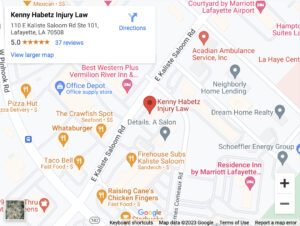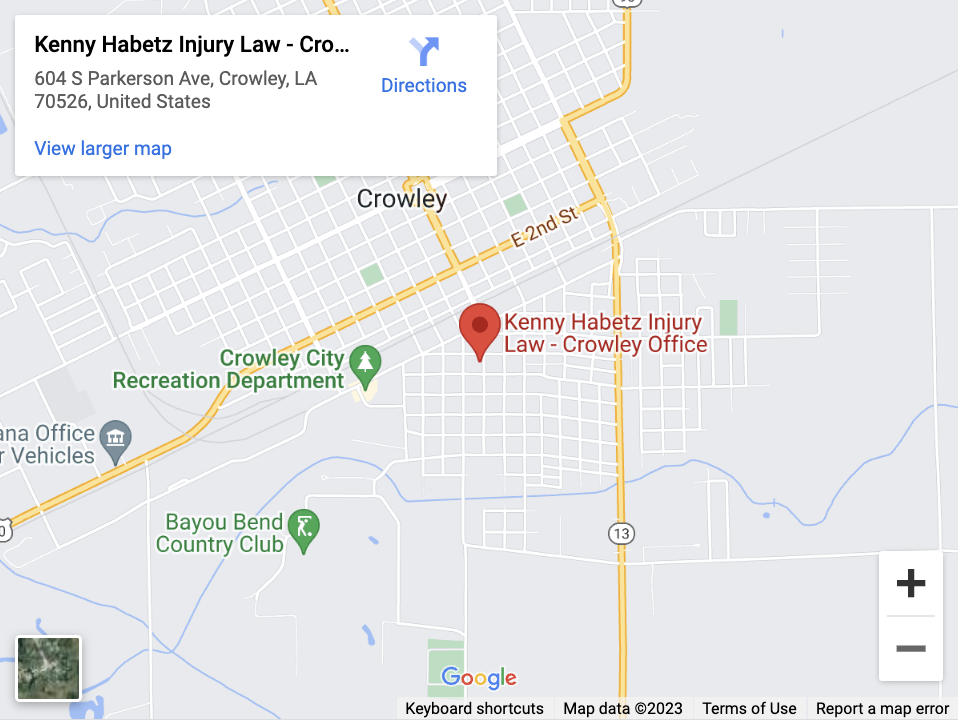Kenny Habetz Injury Law | October 6, 2023 | Personal Injury

Attorney-client privilege is the foundation of effective client representation. This privilege allows a client to feel comfortable providing their attorney with the information needed to craft the best strategy for the representation.
This information may be sensitive in nature, so the importance of understanding the contours of attorney-client privilege cannot be overstated. This blog will briefly explain attorney-client privilege and how the concept can affect your case.
What Is Attorney-Client Privilege?
Attorney-client privilege protects attorneys’ confidential oral and written communications with clients for the purpose of providing legal services to the client. Generally, the privilege does not exist until both parties have agreed to form an attorney-client relationship.
A communication is confidential if it is not meant to be disclosed to anyone other than those involved in the legal representation. Statements, observations, and reactions connected with the communication are also confidential. Communications remain confidential until disclosed by the client or their representative.
Who Is Covered by the Privilege?
The client, as well as any representative of the client, is protected. When the client is a corporation, partnership, or unincorporated association, organizational leadership and management are generally able to assert the privilege on behalf of the entity. If the client is an individual, the privilege continues even after the client’s death.
Similarly, the client’s attorney, as well as the attorney’s representatives, are bound by the privilege. If compelled to testify, the client’s lawyer and the lawyer’s representative have the authority to assert the privilege on behalf of the client.
What Is Not Covered by Attorney-Client Privilege?
The attorney-client privilege, while expansive, does not cover everything. Here are a few examples of information that is not covered by the privilege:
1. The identity of the client or lawyer
The identity of a client or lawyer – as well as the fact that the lawyer is representing that client – is not covered by attorney-client privilege unless disclosure of such identity would reveal a confidential communication.
2. Information not related to the legal representation
If a client shares information about an issue not related to the representation, the client’s attorney is not required to protect that information. For instance, if a client discloses something that might cause someone to be harmed, and that information is unrelated to the representation, the client’s attorney may be able to testify regarding that information.
3. Information that the client or client’s representative discloses
If a client or her representative discloses otherwise confidential communication, voluntarily or inadvertently, the privilege no longer applies.
4. Documents that are otherwise discoverable
If a client can be compelled to produce a document through the discovery process, they cannot shield it from discovery simply by sharing it with their lawyer. The attorney-client privilege applies to confidential attorney-client communications, but is not a blanket protection for all documents that are produced in the course of the attorney-client relationship.
5. Clients’ statements in furtherance of fraud or another illegal act
A lawyer is not required to keep in confidence a client’s statements in furtherance of fraud or another crime, or a client’s plans to commit fraud or another illegal act. This is true especially if a client seeks the lawyer’s advice to commit such an act.
Lawyers can defend their clients against charges relating to past acts, but are not required to remain silent while clients seek lawyers’ advice on how to commit future crimes. This is called the crime-fraud exception.
5. Statements related to either party’s breach of duty to the other
If a client breaches their duty to their lawyer, or the lawyer breaches their duty to their client, statements related to the breach will not be protected by attorney-client privilege. This often arises in the context of legal malpractice claims so that a client can bring claims of attorney malpractice – and also so that the attorney can defend against such claims.
This is not an exhaustive list of exceptions to the attorney-client privilege. A more complete list can be found in the Louisiana Code of Evidence.
The Impact of Attorney-Client Privilege on Your Personal Injury Case
Attorney-client privilege is powerful when properly understood and applied. However, if a client mistakenly shares information that is not protected by the privilege, a lawyer may be compelled to testify regarding the information. This can invite collateral attacks and counterclaims by the opposing party, bringing additional information into the scope of discovery and opening the client up to further liability.If a client has doubts regarding what kinds of information are covered by attorney-client privilege, it may be helpful to ask the lawyer about whether a certain type of information is confidential before disclosing it to the lawyer. Client representation is a joint effort between the client and lawyer, and understanding the attorney-client privilege is essential to this collaboration. This is as true with personal injury cases, including car accidents and workplace accidents, as it is with most other types found in the law.
Contact the Louisiana Personal Injury Law Firm Of Kenny Habetz Injury Law for Help Today
If you’ve been injured in Louisiana, please call Kenny Habetz Injury Law for a free case evaluation with a Louisiana personal injury lawyer or contact us online. We have offices in Lafayette and Crowley, LA.
Kenny Habetz Injury Law – Lafayette
110 E Kaliste Saloom Rd Ste 101 Lafayette, LA 70508
(337) 399-9000
Kenny Habetz Injury Law – Crowley
604 S Parkerson Ave. Crowley, LA 70526
(337) 329-8883


